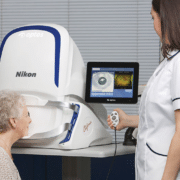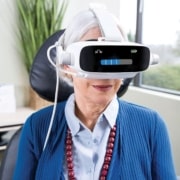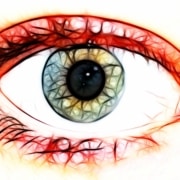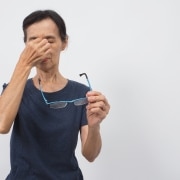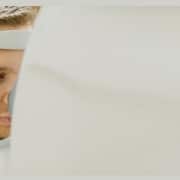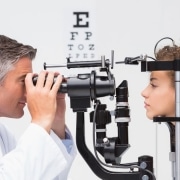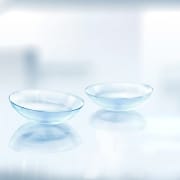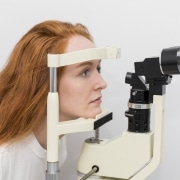Where eye care is concerned, protecting your overall health is a key part of the strategy to keep your eyes in tip-top condition! It’s important to make healthy choices and to take good care of yourself. As we age, our eyes age with us, increasing our chance of developing certain conditions that can directly affect the development of various eye diseases. These conditions include hypertension (high blood pressure) and diabetes. Diabetics risk the onset of diabetic retinopathy, an eye disorder that can potentially result in partial vision loss and eventual blindness.
If you’re worried you might be at risk for eye disease, talk to your doctor. There are steps you can take to lower your risk. Talk with your family members about any eye problems they may have had and inform your eye doctor if any eye diseases run in your family.
Eat Eye-Healthy Foods
Eat healthy foods that support eye health! Carrots, squash, and pumpkin are full of vitamin A—an essential ingredient to good vision and long-term eye care. Also be sure to eat plenty of dark, leafy greens like spinach, kale, and collard greens, which are high in the eye-friendly antioxidant, lutein. Another nutritional source that is good for your eyes is found in foods that are high in omega-3 fatty acids. This includes many types of fish, including salmon, halibut, and tuna.
Don’t Smoke
Quitting smoking not only lowers the risk of heart and lung disease, but it also seriously lessens your chance of age-related macular degeneration, cataracts, and other eye conditions.
Shield Your Eyes
To protect your eyes from the sun’s UV rays, you should consider wearing the best sunglasses available. Even on cloudy days, sunglasses can help protect your eyes from ultraviolet exposure, a known cause of cataracts and certain cancers. The best sunglasses for this purpose are equipped with lenses capable of blocking 99%-100% of UVA and UVB radiation.
Wear protective eyewear when needed! Safety goggles are designed to protect your eyes during hazardous activities, like doing construction work or making home repairs. Don safety goggles or eye guards when using tools that might result in flying debris, drifting gas or fumes, or splashing chemicals.
Sports goggles are also a wise precaution when playing any sport that involves thrown objects.
Keep Your Eyes Clean
If the wrong types of bacteria get into your eyes, they can cause an infection, leading to uncomfortable symptoms like itching, swelling, discharge, pain, and/or difficulty seeing. To avoid this, be sure to throw away old eye makeup and replace your mascara about every three months. If you wear contact lenses, thoroughly wash your hands before you put your contacts in or take them out, and remove them at night even if they’re labeled for long-term wear—sleeping in them will increase the risk of infection by allowing bacteria ample time to multiply in the eyes. Always be sure to clean and disinfect the lenses regularly, and replace them as needed.
Limit Your Screen Time
If you spend too much time staring at TVs, smartphones, or computer screens, it can lead to dry eyes, blurry vision, or headaches. One reason for this is that when we are focused on electronic screens, we blink less often than we normally would.
Too much screen time will tire out your eyes and can eventually lead to a decline in your vision health. To avoid that, try using the 20-20-20 Rule to refresh and rewet your eyes: rest your eyes by taking a break every 20 minutes, to look at something about 20 feet away, for 20 seconds.
Use Eye Drops To Flush Your Eyes When Needed
There are a number of very efficient eye drop brands on the market designed to soothe dry eyes or calm itching from allergies or other irritants. You can use these to wash out your eyes and flush away any foreign particles you may have picked up, keeping your eyes clean and properly irrigated.
Monitor Changes To Your Eyes
You should pay close attention to any changes in the conditions of your eyes. Many eye ailments are painless, and some have symptoms that are easily overlooked.
Symptoms to be concerned about include persistent pain in the eye, reduced or blurred vision, double vision, hampered peripheral vision, or painful eye movement. You should also seek immediate care if one eye looks noticeably different from the other, or if you start to consistently see rainbow-colored rings or halos around light sources.
If you notice any changes to your eyes that seem to be getting worse, or if you experience eye discomfort that does not go away within a few days, you should make an appointment to see an eye care specialist right away.
Get Regular Comprehensive Dilated Eye Exams
Dilated eye exams are quick, simple, and painless, but they are still the single best way to maintain your long-term eye health. Remember: even though your eyes may feel perfectly normal and seem healthy, you might still have a hidden problem that you can’t detect yourself. Many eye ailments don’t present noticeable symptoms at first, or even in their latter stages. A dilated eye exam allows your eye care professional to diagnose the inner workings of your eyes and is the most effective way to detect many eye problems early when they are easier to diagnose and treat.
There are a number of things that you can do to protect your eyes and keep them healthy. The most important action you can take is to get regular eye checkups. Regular eye exams will enable your eye doctor to keep track of your eye health and preemptively spot conditions that could put your vision at risk.
Your partners at Kirman Eye are passionately dedicated to providing our patients with the best and most effective eye-care options available when anticipating all of your optical needs.
Contact us to work with you today!

